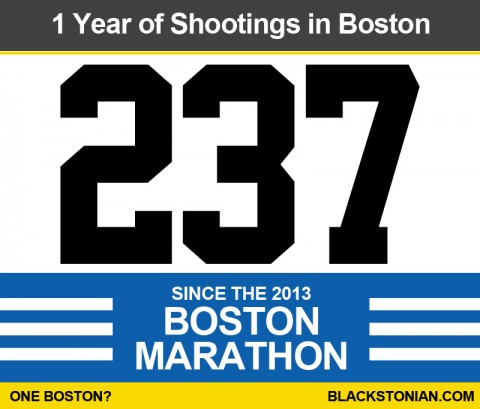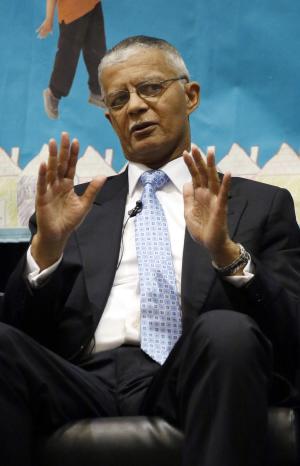April 21, 2014

“Is there really One Boston? Boston Strong? Is the violence that occurs on a day-to-day basis acceptable? Is the reaction and response to violence different depending on where it happens or whom it happens to? Have we become desensitized to ‘regular violence’?” These are the questions the Blackstonian newspaper raises in a report detailing the 237 shootings in Boston since the Marathon bombings. Read More
April 14, 2014
Picking up where Gibrán’s post about our interior condition left us last week and my recent viewing of César Chávez, I wanted to lift up a description of love offered by staff of LUPE on a visit I took there last fall. “Love is a process, not a destination. Love is a set of actions that arise from an emotional state or a cognitive commitment.” Recently, I wrote about the power of strong emotions to create the space for breakthroughs. Today, I want to focus on the processes and commitments rather than the emotional states related to love.
When I read and listen to the reflections of people who are deeply committed to social justice, I am struck by their commitment to engaging with people and engaging the struggle in ways that proceeds from a powerful internal compass, even in the face of strong resistance. Think of the standard bearers of nonviolence during the Civil Rights Movement, who practiced non-retaliation in the face of attacks. Think of the painstaking and beautiful reconciliation process in the wake of Sierre Leon’s civil war, where the restoring right relationship between perpetrators and victims began with a public expression of remorse and a request for forgiveness.
In these cases and many others, there was as much attention to the interior condition of the people involved as there was to designing the processes by which they would catalyze change.
How are you attending to your own interior condition as you work for justice? How are you encouraging others to attend to theirs? How does that translate into processes that embody your commitments to love?
March 31, 2014

This post continues a conversation that Curtis Ogden started last week. (Process is Where Change Happens) It’s a conversation we’ve been having for years at IISC. On one hand, we recognize the importance of understand how thinking shapes the systems we produce and reproduce. And it’s important to understand that inequities and oppression are not just a matter of thinking that can be changed simply by changing our minds. I’ve often been impatient with the “change your thinking, change the world” discourse because I’ve seen it used as an excuse for avoiding discussing the systems dynamics and the resulting inequities they produce. Still, I think there are a few ways in which focusing on the change “in here” can provide power for changing conditions “out there.”
Read More
March 24, 2014

We talk a lot at IISC about the power of love as a force for social change. But what about anger? I’ve seen a couple of recent examples where anger—cleanly and clearly expressed—created space for breakthroughs that I don’t think would have happened otherwise. Anger helped people in power to “get it” about something that they had not otherwise “gotten” when the volume and heat were lower.
Read More
March 17, 2014

What do IISC’s lenses of networks, power and love have to do with breastfeeding? Turns out, a lot! I had the privilege of facilitating the second annual First Food Forum: Every Child, Every Mother, Every One of Us, sponsored by the W.K. Kellogg Foundation for its first food grantees. Participants connected the dots between networks, power and love in powerful ways. Love is probably the easiest connection to make.
Read More
March 3, 2014

Four compelling questions came to me via the monthly newsletter of Conditioning Leaders, led by our colleague Madeline McNeely. She’s reflecting on 20 years of work and asking herself some great questions that we should all be asking ourselves as our year gets into full swing:
Read More
February 26, 2014
 We are deeply saddened by the news that Mayor Chokwe Lumumba of Jackson, Mississippi, was found dead yesterday.
We are deeply saddened by the news that Mayor Chokwe Lumumba of Jackson, Mississippi, was found dead yesterday.
Lumumba, a founding member of Malcolm X Grassroots Movement and a widely respected human rights attorney, was in the initial stages of launching a sweeping set of economic reform initiatives, built on a foundation of broad-based civic participation in Jackson.
Read More
February 24, 2014

Enjoy these simple and powerful guidelines from Beth Kanter about how movement makes meetings and workshops more productive. This is great advice for getting beyond designing for “brains on sticks” as my colleague Curtis Ogden likes to say.
As a trainer and facilitator who works with nonprofit organizations and staffers, you have to be obsessed with learning theory to design and deliver effective instruction, have productive meetings, or embark on your own self-directed learning path. Learning theory is an attempt to describe how people learn. There are many learning theories and can be categorized in different ways:
Read More
February 18, 2014

8/14/14 Update: Sadly the list of names in this post has grown in the past week with the deaths of Eric Barnes and Mike Brown. In both cases it appears that aggressive policing of minor offenses escalated, resulting in deaths that did not need to happen. #blacklivesmatter
I find the fact that we need a conversation called #BlackLivesMatter disturbing. But it’s a badly needed conversation and one that needs to catalyze effective action. It’s urgent that we create a context where it’s no longer “understandable” that someone could be afraid enough of an unarmed black person to justify killing him or her.
Read More
February 11, 2014

Bill Gates’ 2014 annual letter debunks three myths about poverty and foreign aid. It reminds me about the power of narrative to drive decision making and action, even when the narrative is not backed up by facts. Here are the debunked myths in short form. Read the full letter for the longer version.
Read More
February 3, 2014

The following post has been written by Royve Holladay at The Adaptive Action. We hope you enjoy it as much as we did!
Can three questions really change the world? Well, maybe. Let’s think about it for a minute. One thing we know about schools is that nothing stays the same for long. Each year brings the latest “best practice.” Each week brings a new procedure and its paperwork. Each day, our students pose new challenges. Each hour, the media bombards us with news about the latest crisis. What might possibly help us keep our balance as the world shifts beneath us?
Read More
January 26, 2014

The following post has been reblogged from our friend August Turak. Check out more of August’s amazing work!
The industrial age led to the compartmentalization of life. We turned everything into a silo. We even siloed ourselves. Here I am spiritual, here I am fun, here I work… We have been looking at personal development through that limited lens. But August Turak points us in a different direction. He invites us to make “personal development” the central purpose of our lives. When we make our own evolution a central purpose in our lives we become active contributors to the evolution of consciousness and culture as well as the material changes we want to see in the world. I hope you enjoy this post from August Turak as much as we did.
Read More










